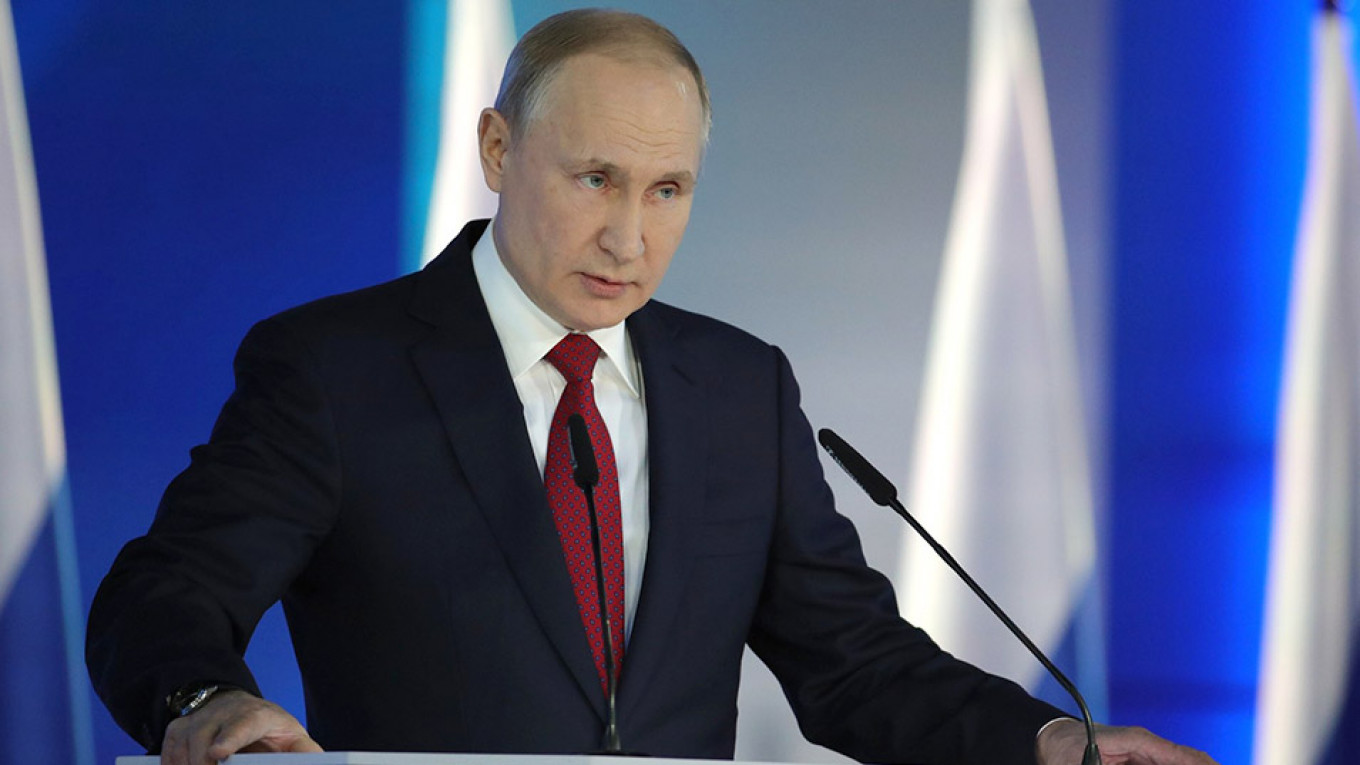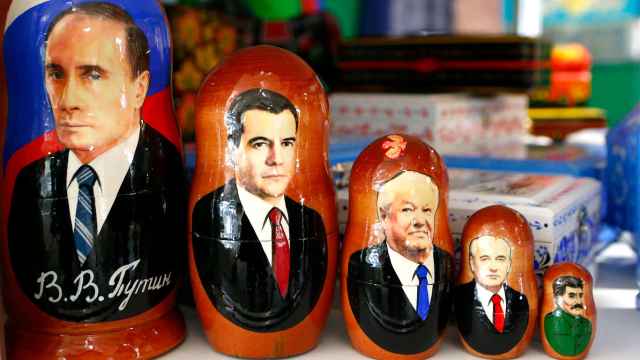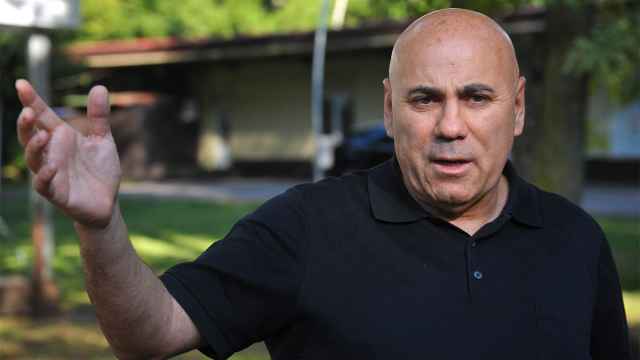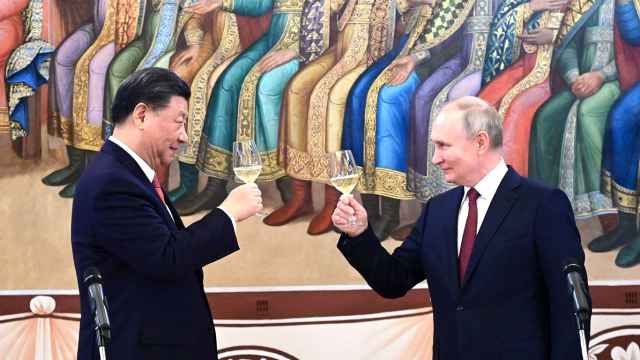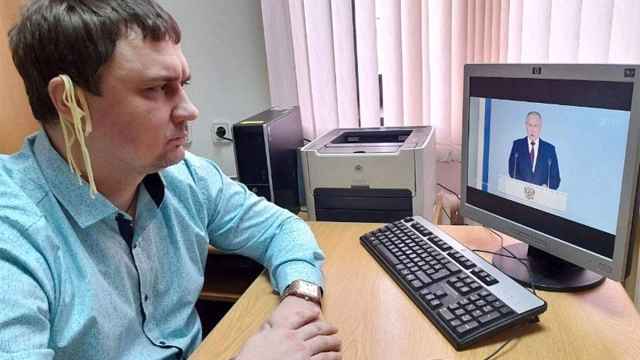President Vladimir Putin on Wednesday proposed a nationwide vote on sweeping constitutional changes that would shift power from the presidency to parliament and the prime minister, a move that could allow him to extend his rule after leaving the Kremlin.
In power as either president or prime minister since 1999, Putin, 67, is due to step down in 2024 when his fourth presidential term ends.
He has not yet said what he plans to do when his term expires, but under the current constitution, which bans anyone from serving more than two successive presidential terms, Putin is barred from immediately running again.
Putin told the country's political elite in his annual state-of-the-nation speech on Wednesday that he favoured changing the constitution to hand the State Duma, the lower house of parliament, the power to choose Russia's prime minister and other key positions.
"Of course these are very serious changes to the political system," Putin said, adding that he thought parliament and civil society was ready for the changes.
"It would increase the role and significance of the country's parliament ... of parliamentary parties, and the independence and responsibility of the prime minister."
Putin's comments are likely to reignite speculation about his plans once his current presidential term ends in 2024.
Critics have long accused him of plotting to stay on in some capacity to wield power over the world's largest nation after he steps down. He remains popular with many Russians who see him as a welcome source of stability even as others complain he's been in power for too long.
Critics have suggested he is considering various options to remain at the helm, including by shifting power to parliament and then assuming an enhanced role as prime minister after he steps down in 2024.
Another option often mentioned is his heading a State Council, a body that Putin said on Wednesday he thought should be given more powers under the constitution.
Although it remains unclear whether Putin will play a major role in Russian political life after 2024, his new proposals point to possible options if he decides to remain at the top table of Russian politics as many supporters and critics expect.
Under the proposals, the prime minister would present parliament with candidates for the country's deputy prime ministers and government ministers, which parliament would also confirm.
"The president would be obliged to appoint them (the parliament's confirmed picks) to these jobs," said Putin. "He would not be allowed to reject candidates confirmed by parliament."
Dmitri Trenin, head of the Moscow Carnegie Center, said Putin had begun the process of redrawing state powers ahead of the 2024 end to his current presidency.
According to Trenin, Putin also appeared to be moving to limit the power of a presidential successor after he said on Wednesday that he favored limiting the number of presidential terms anyone can serve to two.
Putin himself is currently on his fourth term.
A Message from The Moscow Times:
Dear readers,
We are facing unprecedented challenges. Russia's Prosecutor General's Office has designated The Moscow Times as an "undesirable" organization, criminalizing our work and putting our staff at risk of prosecution. This follows our earlier unjust labeling as a "foreign agent."
These actions are direct attempts to silence independent journalism in Russia. The authorities claim our work "discredits the decisions of the Russian leadership." We see things differently: we strive to provide accurate, unbiased reporting on Russia.
We, the journalists of The Moscow Times, refuse to be silenced. But to continue our work, we need your help.
Your support, no matter how small, makes a world of difference. If you can, please support us monthly starting from just $2. It's quick to set up, and every contribution makes a significant impact.
By supporting The Moscow Times, you're defending open, independent journalism in the face of repression. Thank you for standing with us.
Remind me later.



